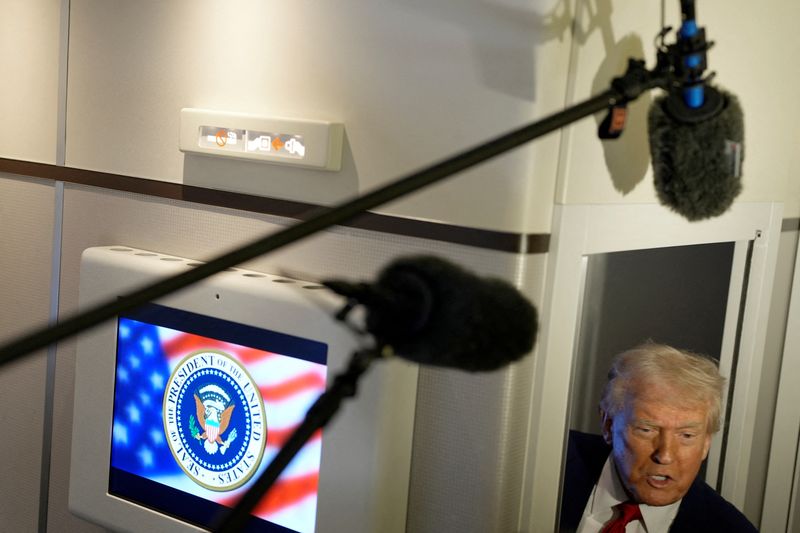
By Francesco Canepa and John O’Donnell
FRANKFURT (Reuters) -With the ink still fresh on U.S. President Donald Trump’s latest batch of tariffs, some are already bracing for what may come next in his effort to strong-arm trading partners into doing his bidding.
As the epicentre of the financial world and the issuer of the global reserve currency, the United States has a number of levers that Trump can pull to coerce other countries, from credit cards to the very provision of dollars to foreign banks.
While deploying these unconventional weapons would come at a large cost for the U.S. itself and may even backfire altogether, observers say such doomsday scenarios should not be discarded.
This would be particularly true if tariffs do not succeed in reducing the U.S. trade deficit with the rest of the world – an outcome many economists see as plausible given the fact that near-full employment in the U.S. has led to deep labour shortages.
China retaliated on Friday, sending U.S. stocks tumbling further, deepening the crisis.
“I could well imagine that Mr. Trump…grows frustrated and he does try to implement wacky ideas, even if the logic for them is not there,” said Barry Eichengreen, professor of economics and political science at the University of California, Berkeley.
MAR-A-LAGO ACCORD
The U.S. administration’s not-so-secret plan is to rebalance trade by weakening the dollar. A way to do that would be to enlist foreign central banks in a coordinated effort to revalue their own currencies.
According to a paper by Trump’s pick to chair his Council of Economic Advisers, Stephen Miran, this may happen as part of a Mar-a-Lago accord, a reference to the dollar-capping Plaza Accord of 1985 and to Trump’s resort in Florida.
The November paper suggested the United States would use the threat of tariffs and the lure of U.S. security support to persuade foreign countries to appreciate their currencies against the dollar, among other concessions.
But economists are sceptical any such deal would gain traction in Europe or China because the economic and political situation is so different now from four decades ago.
“I think that’s a really unlikely scenario,” Maurice Obstfeld, a senior fellow at the Peterson Institute for International Economics, said.
Obstfeld argued tariffs had already been imposed, removing their use as a threat, and the United States’ commitment to global security had been weakened by its ambiguity on Ukraine.
He added central bankers in the euro zone, Japan and Britain were unlikely to yield to a deal that would see them forced to raise interest rates and risk a recession.
